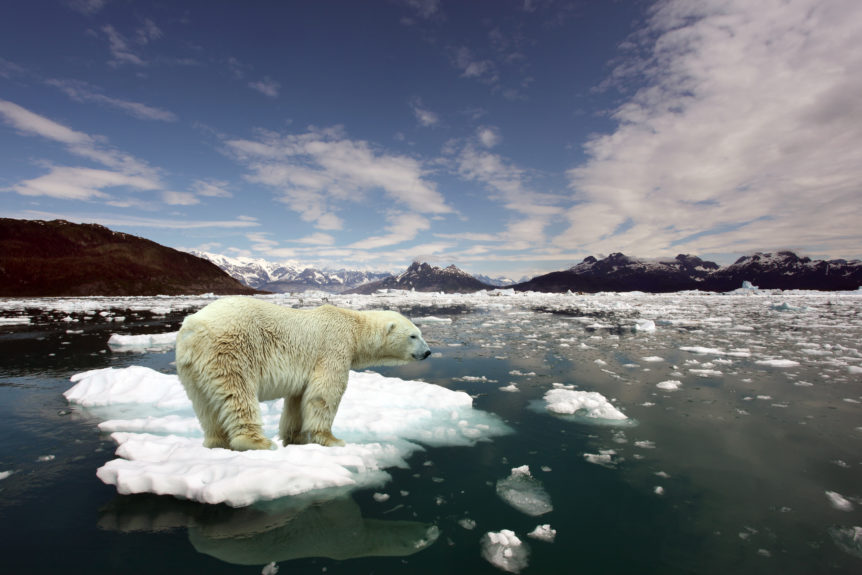- Like
- Digg
- Tumblr
- VKontakte
- Buffer
- Love This
- Odnoklassniki
- Meneame
- Blogger
- Amazon
- Yahoo Mail
- Gmail
- AOL
- Newsvine
- HackerNews
- Evernote
- MySpace
- Mail.ru
- Viadeo
- Line
- Comments
- SMS
- Viber
- Telegram
- Subscribe
- Facebook Messenger
- Kakao
- LiveJournal
- Yammer
- Edgar
- Fintel
- Mix
- Instapaper
- Copy Link
June 5 annually marks the United Nations’ World Environment Day, an effort to bring attention to environmental issues and inspire people to act locally to protect the planet. This year’s important theme is plastic pollution, which was chosen by the 2018 host country, India.
Our excessive one-use consumption of plastic is harming our planet and those who inhabit it. Plastic isn’t just taking up space…it’s smothering coral reefs, killing wildlife, and even getting into our food and water.
Animal rights and environmental justice go hand in hand, and all life on this planet is interconnected. Our consumer choices impact the lives of others: By protecting the earth, we’re also protecting those who call it home!
Killing marine life
Whether they are eating plastic or getting stuck in it, animals like sea lions, sea turtles, fish, dolphins, whales, and birds are suffering. With so much plastic in the ocean, animals are mistaking it for food or simply consuming or inhaling it involuntarily, which is harmful to their digestive systems. In fact, just last week a pilot whale died off the shore of Thailand after having accidentally ingested 80 plastic bags.
With ocean ecosystems in peril and many species of marine life declining and even becoming endangered, human activity (including plastic waste!) is largely to blame.
For those who eat fish–there’s a good chance this plastic has been passed on to you. Even fish as small as Anchovies consume microplastics, which wind up in the larger fish and birds who eat them.
Plastic in the ocean is also smothering and spreading disease to coral reefs. According to Joleah Lamb of Cornell University, once coral tissue dies, it can’t come back. This is terrible news, as coral reefs provide habitats for a whole host of sea creatures and help prevent shore erosion.
Not just plastic! The best way to protect the planet = eat plants
The use and disposal of plastic, however, is far from the only way that consumer choices are impacting our environment. In fact, just last week, Science published a study that confirmed what many of us already believed: the most effective way to reduce your environmental impact is to stop consuming animal products.
This study, the biggest of its kind, looked at thousands of farms and their impacts on the environment. Researchers found that even the lowest-impact farms raising animals contributed far more to climate change than even the least sustainable plant crops. “Converting grass into [meat] is like converting coal to energy,” said lead researcher Joseph Poore, “It comes with an immense cost in emissions.”
Poore also stated (leaving no room for interpretation) that, “A vegan diet is probably the single biggest way to reduce your impact on planet Earth, not just greenhouse gases, but global acidification, eutrophication, land use and water use.”
Ways to lessen your impact
-Go vegan! Those celebrating World Environment Day are already showing that they care for the earth and those who inhabit it. Now, stand up for the earth every time you sit down to eat, by choosing more sustainable plant-based meals.
-Don’t use plastic! If you do need to use plastic, avoid single-use plastic items and reuse the plastic as much as you can to keep it out of waterways and landfills. However, there are lots of ways to avoid it, like saying “no, thank you” to plastic straws in restaurants, keeping your own utensils with you to avoid using plastic ones, and simply buying a reusable water bottle.
-Utilize reusable bags at the grocery store. The amount of plastic bags used around the world is staggering. Plus, many places are beginning to tax plastic bags…or outlaw them altogether! Saving money + saving the planet with reusable bags is tote-ally a win-win!
– Download our FREE guide to Eating Sustainably!
-Check out some other useful tips for making your grocery trip more sustainable at TryVeg.com.

